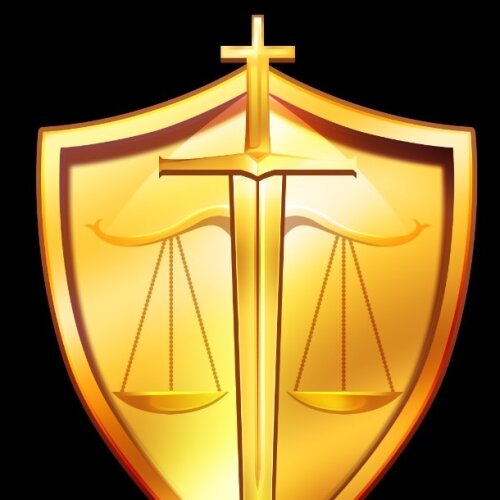Best E-commerce & Internet Law Lawyers in Quezon City
Share your needs with us, get contacted by law firms.
Free. Takes 2 min.
List of the best lawyers in Quezon City, Philippines
About E-commerce & Internet Law in Quezon City, Philippines
E-commerce and internet law in Quezon City is a rapidly evolving field, closely tied to the broader technological and digital landscape of the Philippines. With the proliferation of digital transactions, online businesses, and the increasing need for cybersecurity, this area of law encompasses a wide range of issues including data protection, consumer rights, electronic contracts, intellectual property, and cybercrime. As a hub for digital enterprises in the Philippines, Quezon City is subject to national laws such as the Electronic Commerce Act of 2000 and the Data Privacy Act of 2012, which frame the local regulatory environment.
Why You May Need a Lawyer
Individuals and businesses may find themselves in need of legal assistance in e-commerce and internet law for various reasons. Common situations include:
- Resolving disputes related to online purchases or sales.
- Drafting and reviewing digital contracts and terms of service.
- Ensuring compliance with data protection and privacy regulations.
- Addressing issues related to intellectual property rights and domain names.
- Responding to cases of online fraud or cybercrime.
- Guidance on setting up an e-commerce business according to local laws.
Legal expertise is invaluable in navigating these complex matters, ensuring business operations remain lawful, and protecting consumer rights.
Local Laws Overview
Quezon City adheres to Philippine national laws concerning e-commerce and internet activities. Key legislations include:
- The Electronic Commerce Act of 2000: Facilitates the recognition of electronic documents and signatures, providing a legal framework for online transactions.
- Data Privacy Act of 2012: Imposes obligations on businesses to protect personal data collected from users, with the National Privacy Commission overseeing compliance.
- Cybercrime Prevention Act of 2012: Addresses offenses such as hacking, identity theft, and other violations conducted through the internet.
Understanding these laws is crucial for both businesses and consumers to ensure compliant and secure participation in the digital economy.
Frequently Asked Questions
What is the legal age for engaging in an online contract in the Philippines?
The legal age for engaging in an online contract is 18 years, which is the majority age in the Philippines.
Are electronic signatures legally recognized in Quezon City?
Yes, electronic signatures are legally recognized under the Electronic Commerce Act of 2000, making them valid for online agreements.
How are consumer rights protected in online purchases?
Consumer rights are protected by laws ensuring fair practices, accurate advertising, and recourse in case of defective products or services.
What should businesses do to comply with data privacy regulations?
Businesses must implement data protection measures, appoint data protection officers, and notify users of data collection and processing practices.
How can I protect my online business from cyber threats?
Implement robust cybersecurity measures, regular audits, employee training, and comply with the Cybercrime Prevention Act to mitigate risks.
Is online defamation actionable under Philippine law?
Yes, online defamation is actionable under both civil and criminal laws, with remedies including damages or penalties for perpetrators.
Can I use copyrighted materials for my online content?
Using copyrighted material without permission can infringe intellectual property rights. Consider licensing or obtaining appropriate permissions.
What procedures should I follow for a domain name dispute?
Domain name disputes can be settled through arbitration under rules provided by organizations like the World Intellectual Property Organization (WIPO).
Are there regulations specifically for online marketplaces?
Online marketplaces must adhere to general e-commerce laws, ensuring transparency and fairness in transactions conducted on their platforms.
How do I report a case of online fraud?
You can report online fraud to local authorities or the Philippine National Police-Anti-Cybercrime Group for investigation and resolution.
Additional Resources
Numerous resources are available for further information and assistance:
- Department of Trade and Industry (DTI): Provides guidelines and support for e-commerce initiatives.
- National Privacy Commission: Offers resources for compliance with data privacy laws and regulations.
- Philippine National Police-Anti-Cybercrime Group: Handles reports and investigations of cybercrimes.
Next Steps
If you require legal assistance in e-commerce and internet law in Quezon City, consider the following steps:
- Consult legal professionals specializing in e-commerce law to understand your rights and obligations.
- Research local law firms or legal support services with a focus on digital and cyber law.
- Prepare relevant documentation and information related to your case or legal query.
- Stay informed about legislative changes that may impact e-commerce and internet practices.
Taking these steps will help ensure you receive informed and effective legal support tailored to your specific needs.
Lawzana helps you find the best lawyers and law firms in Quezon City through a curated and pre-screened list of qualified legal professionals. Our platform offers rankings and detailed profiles of attorneys and law firms, allowing you to compare based on practice areas, including E-commerce & Internet Law, experience, and client feedback.
Each profile includes a description of the firm's areas of practice, client reviews, team members and partners, year of establishment, spoken languages, office locations, contact information, social media presence, and any published articles or resources. Most firms on our platform speak English and are experienced in both local and international legal matters.
Get a quote from top-rated law firms in Quezon City, Philippines — quickly, securely, and without unnecessary hassle.
Disclaimer:
The information provided on this page is for general informational purposes only and does not constitute legal advice. While we strive to ensure the accuracy and relevance of the content, legal information may change over time, and interpretations of the law can vary. You should always consult with a qualified legal professional for advice specific to your situation.
We disclaim all liability for actions taken or not taken based on the content of this page. If you believe any information is incorrect or outdated, please contact us, and we will review and update it where appropriate.











